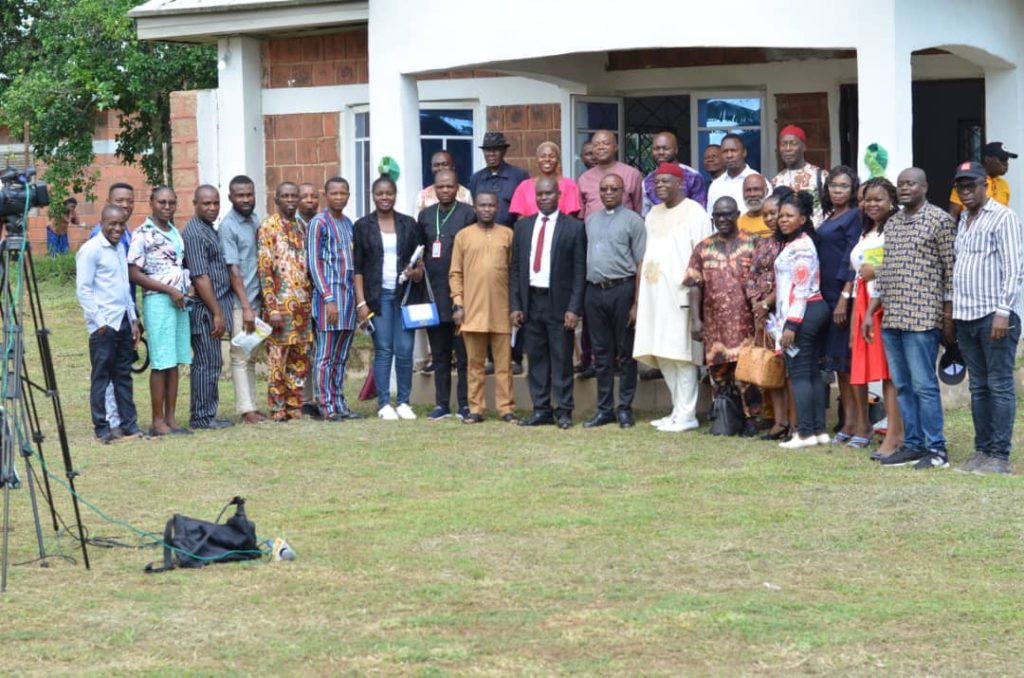Stephen Ukandu, Umuahia
Participants at a seminar for media practitioners on basic mental health issues and their role in creating awareness for efficient and human-right based mental health care in Nigeria, have called for increased budgetary provisions towards tackling mental health issues and provision of incentives for medical practitioners and Journalists in the field.
The one-day seminar was organised by Amaudo Integrated Community Mental Health Foundation in partnership with Abia State Government, Federal Neuro-Psychiatric Hospital, and Amaudo United Kingdom, for media practitioners in South-East geopolitical zone, at Mbukwa-Itumbauzo community in Bende Local Government Area of Abia State.
Participants at the event including mental health experts, urged government at all levels to give adequate attention to mental health issues and equip facilities at the Primary health care level to address cases relating to mental health.
They also called for the strengthening of relevant government agencies saddled with the responsibility of regulating drug use so as to restrict access to drugs especially among the younger population.
The participants in a communique after the seminar called on State Governments to domesticate and implement the new mental health act recently signed into law by the immediate-past administration of President Muhammadu Buhari.
They identified lack of adequate knowledge in mental health as a challenge and called for regular seminars/trainings for Media Practitioners on mental health issues as a way of properly equipping them to eliminate bias in their reportage and enhance the publicity given to mental health issues.
The participants equally urged media organisations to design and dedicate adequate time to publicising mental health issues in their various media outfits as a way of enhancing sensitisation of the public.
They appealed to experts in mental health to be open to discuss mental health-related issues with the media as a way of educating the public while families of victims of mental ill health should be encouraged to accommodate and assist them appropriately and avoid stigmatisation.
They commended the management of Amaudo Integrated Mental Health Foundation for the huge humanitarian services the Foundation was rendering, and called on government to urgently address the key challenges such as lack of access road, electricity and other infrastructural deficits in the area as a way of encouraging the foundation.
The participants also called on government to make the study of mental health and other related courses attractive with a view to addressing the shortage of manpower in the mental health sub-sector.
They agreed that harsh economic policies as currently witnessed in Nigeria are capable of triggering mental health disorder.
Speaking at the event, the Managing Director, Federal Neuro-Psychiatric Hospital, Enugu, Professor Monday Igwe, said that “one in every 24 adults is under severe mental disorder.”
He also said that “one in every four persons experiences mental disorders in a lifetime.”
Professor Igwe, who was represented by Dr Okwudili Obayi, called for more collaboration among the stakeholders to reduce cases of mental disorder among the populace.
Professor Igwe tasked media practitioners to be more active in educating the public on mental health to change the wrong perceptions about mentally ill persons.
He advised media practitioners against using words that could stigmatise mental health patients.
Speaking also, the Director, Amaudo Integrated Community Mental Health Foundation, Rev. Father Kenneth Nwaubani, called for greater partnership between the foundation and media practitioners to enhance mental health awareness campaign in country.
He decried stigmatisation of mental health patients and urged the media to help correct the anomaly.
Some of the challenges before the Foundation, according to the cleric include poor mental health knowledge, poor funding, local and political instability, poor road infrastructure, absence of power supply as well as worsening social and environmental issues.
He called for collaboration among stakeholders in the sub-sector for better results.
“Strong partnership with the government, foreign organisations, families, local communities has gone a long way to reduce the cases of mental relapse after rehabilitating any mentally challenged person,” he urged.
“With collaborative efforts from media practitioners the effort made by the foundation to provide holistic and cost-effective treatment, address the mysteries, stigma, discrimination and misconceptions associated with mental illness will be highly effective,” he added.
In a remark, the Chairman, Amaudo Board of Management, Mr Emma Ndukwe, expressed optimism that the event would create a paradigm shift that would produce better results in the mental health awareness campaign.
He said that the Foundation had been at the forefront of raising mental health awareness, adding that the interface between the Foundation and Journalists would further escalate the awareness.

